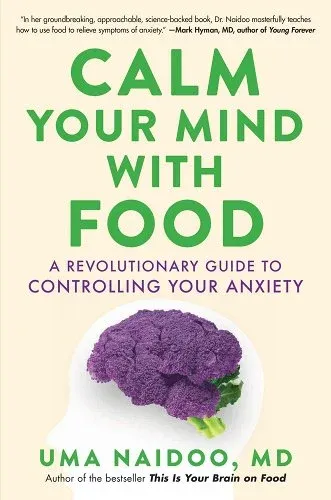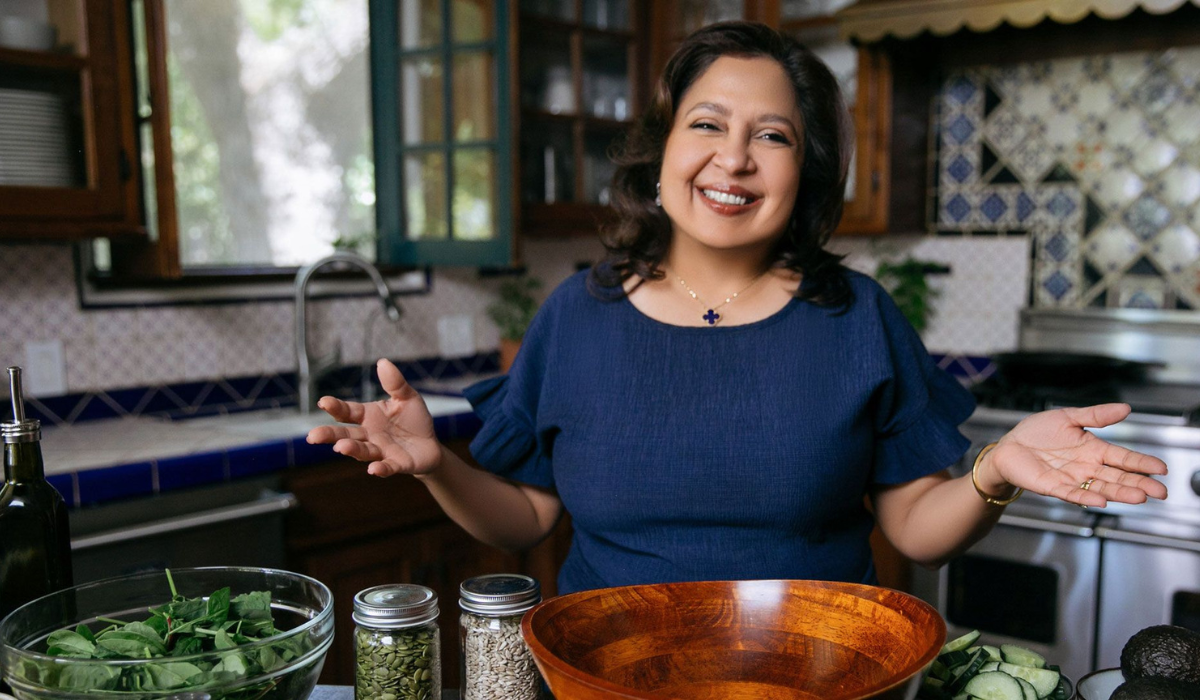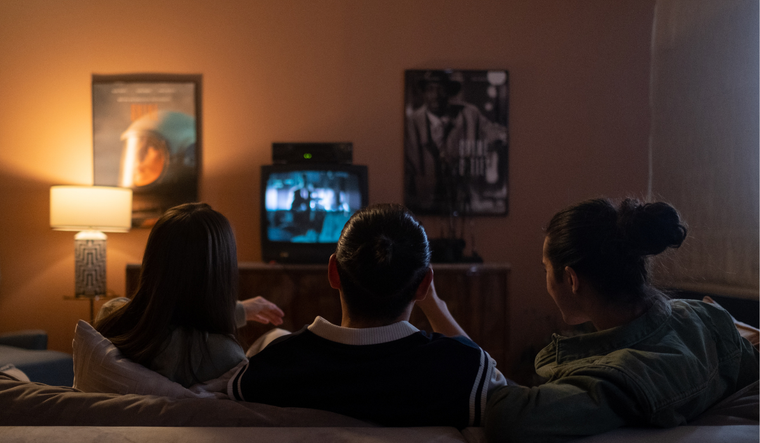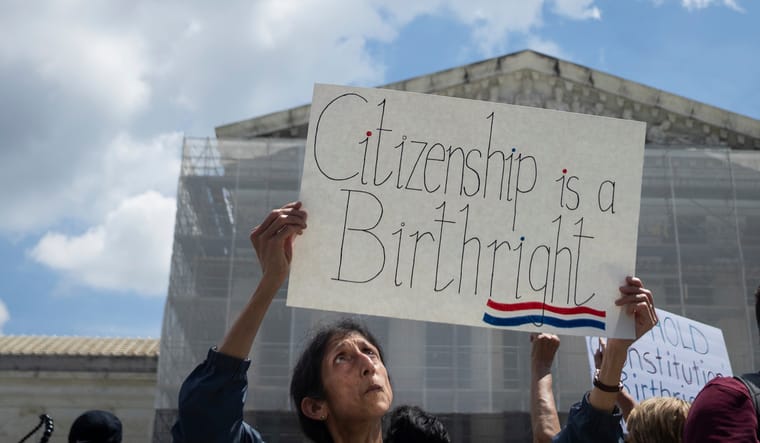You Can Calm Your Anxiety With Food, Says Nutritional Psychiatrist Dr. Uma Naidoo. Here’s What to Eat to Feel Better
Dr. Uma Naidoo has changed the way we eat for the better. With her global bestseller This Is Your Brain on Food, the nutritional psychiatrist outlined the food-mood connection and what we should put on our plates to beat depression, OCD, anxiety, and more. Simply put, Dr. Naidoo highlighted the power of food in a way we’d never seen before.
Now Dr. Naidoo is back with Calm Your Mind with Food: A Revolutionary Guide to Controlling Your Anxiety. In this insightful book, she goes even deeper into the most vexing mental health issue of our time, revealing how anxiety connects with the brain and gut, and the solutions that don’t require prescription medications. As Dr. Naidoo writes, “The ability to fight against anxiety should not be reserved only for those who have access to good health care.”
Dr. Naidoo, who offers personal anecdotes about her upbringing and nutritional journey in her new book, never proselytizes or judges. Her wisdom about how to calm our minds with food is inclusive. “My work is about equity,” she tells The Sunday Paper, respecting what you choose to eat “but tweaking it for your best brain health.”
A CONVERSATION WITH DR. UMA NAIDOO
You write that you have compassion and concern for all the people suffering from anxiety today. What have you been seeing?
I don't think people realize how rampant anxiety is. The Lancet has published a paper saying that anxiety has increased by 25 percent [since 2020], and this is after it has been the leading condition in mental health. Covid uncovered what was always a mental health crisis. In the early 2020s, Zoloft went into shortage in the United States, showing the uptake of new diagnoses of people with mood disorders, specifically anxiety. It's been quite a hard time for people.
That is why it is so important for everyone to have ways to feel better. Globally, more than 70 percent of people with mental illness receive no treatment from healthcare staff. Putting that all together, you realize there must be more solutions. And the textbook diagnosis of anxiety through DSM-5-TR [Diagnostic and Statistical Manual of Mental Disorders], while it is a standardized manual that mental health professionals use, it does not capture enough people and all people.
What are some misconceptions about anxiety?
One misconception is that anxiety is all bad and that it must be something that we fix versus lean into and use to push us forward. Another is that anxiety can only be cured through medication or therapy. Many people think, If it's anxiety, I've got to take medication. And while I really believe in therapy, and certainly for a certain number of my patients, medications can be lifesaving, but these are not the only cures. I've seen in my clinical work that a good number of people can use nutritional psychiatry and a lifestyle plan, which includes breathwork, movement, exercise, hydration, healthily tweaking their diet, and preparing meals. All these things really contribute to helping anxiety.
Talk to us about the connection between immunity, anxiety, and the gut. What is critical to understand?
People don't necessarily put these parts of the body together. The gut and brain are connected, which I go into in my first book. In my new book, I explain the high-level gut-brain connection again, and I also include this other connection: immunity. Our immune system is the system that protects our body, and about 70 percent of it is contained in the gut. This means these immune cells are interacting with the food we eat. So, it is important to know that the immune system and the gut are connected. I felt that this interaction had not really been spoken about and, therefore, was a missing piece for many people.
I want people to understand the basics of the science. They can skip over that in this book and go straight to parts two and three about the foods and interventions. But when you have a basic understanding of how all this works in the body, and you think, This impacts the immune system, this impacts my anxiety, and you then want to make [dietary and lifestyle] changes, that is really key.
Please offer us a preview of your "antianxiety eating plan" from your book. What foods should we reach for first?
The Mediterranean Diet is the best place to start. It covers a lot of the basic principles to lean into. It's the combination of these foods that can be powerful. Many people have heard of the Mediterranean Diet before, but I brought recipes into the book to make it more inclusive and interesting. I combine Asian spices with Mediterranean foods, for instance, and Asian foods with Mediterranean spices. This is a way to expand our view of the Mediterranean diet and for people to see that it can be so much more.
How should we approach what we eat?
In thinking about the foods to eat, I talk about building a nutritional psychiatry plate. To do this, I want people to think of the following:
• Add as many plants and vegetables to your plate as possible. Aim for these to be a kaleidoscope of colors and textures.
• Then, add healthy protein about the size of the palm of your hand. This healthy protein could be baked tofu, a cauliflower steak, a chicken breast, or a steak—ideally grass-fed, if that's accessible to you.
• Next, add healthy fats. This could be olive oil to dress your green salad on your plate, which is part of that vegetable section.
• Then, add a healthy, complex carbohydrate. This could be a small portion of quinoa so you're getting some healthy grams of protein and fiber.
That is how I'd like people to think about building their plates. Also, play up the spices and herbs and change the vegetables so you can always make this work for you.
You believe perfectionism and restriction can be harmful. This likely comes as a relief, as healthy eating can often make us think it's all or nothing.
This is absolutely right. More people eat meat than do not right now in this country. More people drink alcohol; more people drink coffee. These foods and food groups that tend to get demonized really need to be embraced. We need to find a way to consume them and not feel that we're going to be doing something wrong. Yes, some of them have problems, such as dairy. But I'm not saying to eat dairy every day and have it be your sole source of protein or probiotics. I'm saying you can enjoy dairy in certain portions. You can mix it with some cinnamon or blueberries. You can do it in a way that means you can embrace it and have a flexible, open diet that is filled with eating whole foods.
I feel very strongly that when you hear you cannot eat something, that comes from a restrictive mentality that is very exclusionary to people. I believe the only way to help this country out of the nutritional mess that we're in and to help our anxiety is to find a way forward by being inclusive. It is about saying, 'Okay, have a steak, but how can you tweak that to help your anxiety?'

Uma Naidoo, MD, is a board-certified Harvard Nutritional Psychiatrist, professional chef, and nutritional biologist. She is the founder and director of the first and only hospital-based Nutritional and Metabolic Psychiatry Service in the United States, at Mass General Hospital. She serves as the Director of Nutritional Psychiatry at MGH Academy and is on the faculty at Harvard Medical School. Learn more at umanaidoomd.com.
Please note that we may receive affiliate commissions from the sales of linked products.



